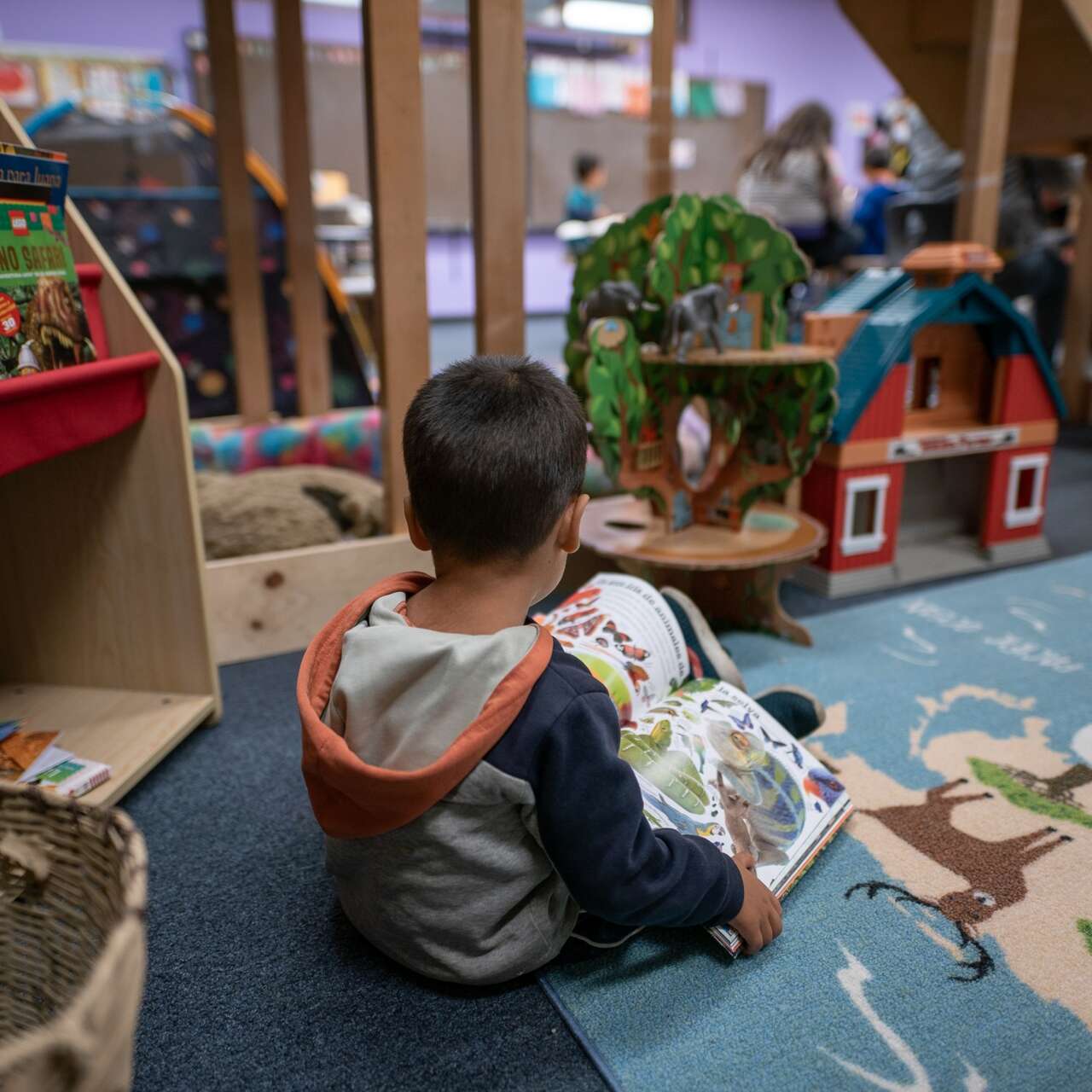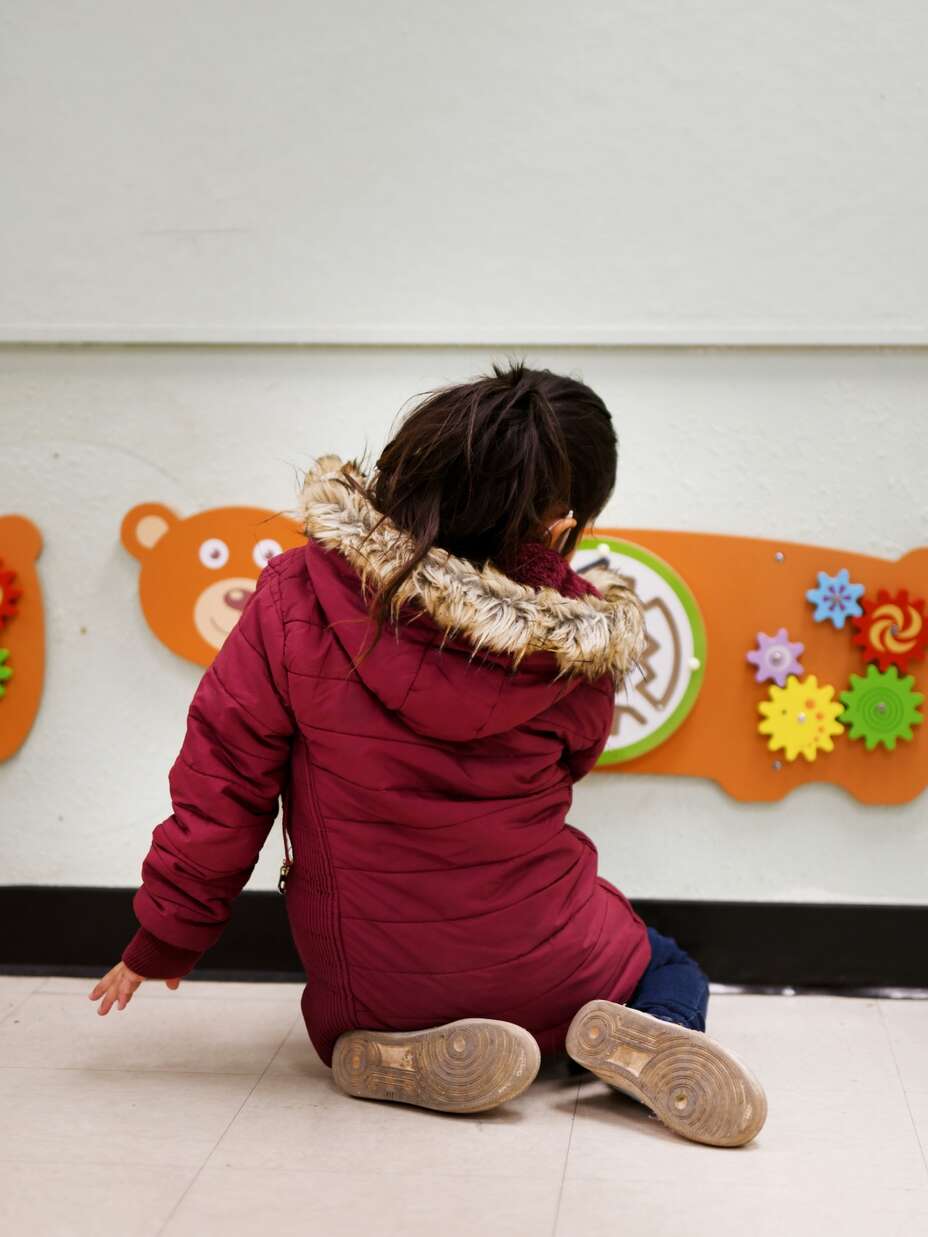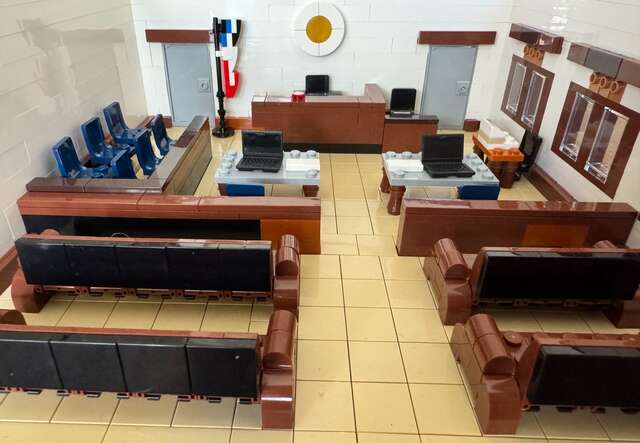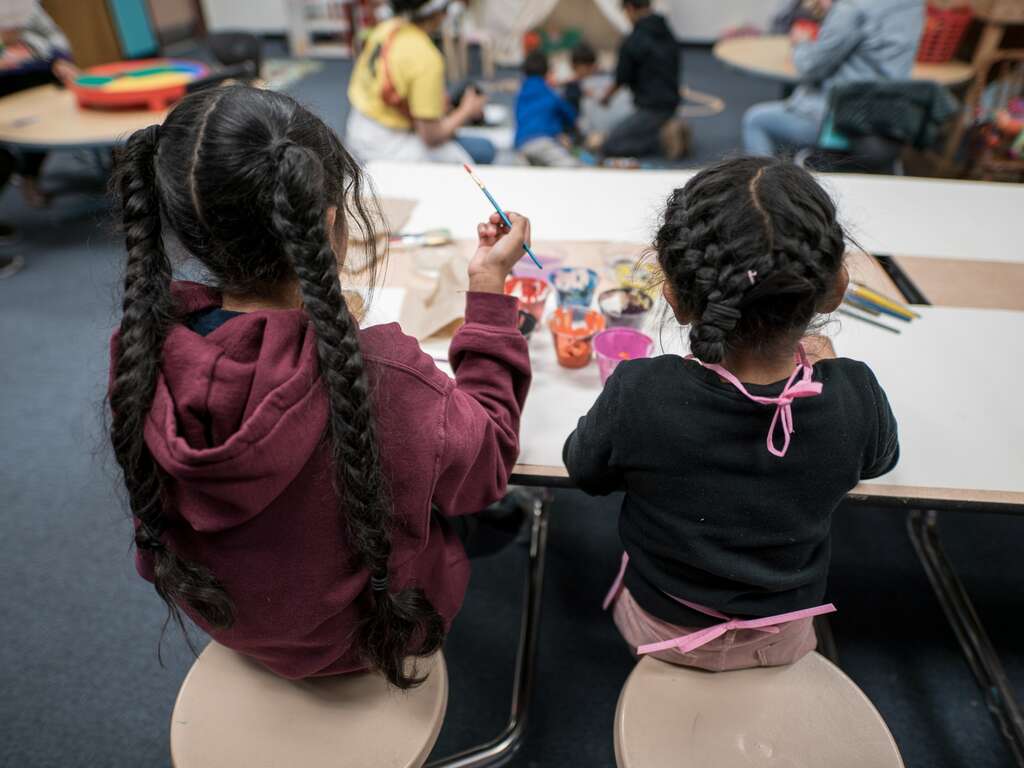
Every child deserves safety and protection. Yet, for thousands of unaccompanied minors fleeing violence, abuse and extreme hardship, the journey to safety is anything but safe. Children who have traveled alone to seek asylum in the United States are in urgent need of support.
For years, the International Rescue Committee (IRC) has provided unaccompanied minors with protection services, legal aid and long-term assistance. However, decisions by the Trump administration to roll back protections for unaccompanied minors are jeopardizing these programs.
Without immediate action, thousands of vulnerable children could be left without the vital support they need to gain permanent protection and grow up with a secure place to call home.
Why do unaccompanied minors seek safety in the U.S.?
Unaccompanied minors seek safety in the U.S. for several reasons. Many are escaping gang violence, abuse or threats of trafficking. Some have lost parents or caregivers and have no choice but to make the dangerous journey on their own.
Once they arrive at the U.S. southern border, they are considered unaccompanied minors—children under 18 who have traveled on their own without a parent or legal guardian. Between 2021 and 2024, an average of more than 117,000 unaccompanied minors were referred to the Office of Refugee Resettlement each year.
Across the political spectrum, Congress has recognized that these children are entitled to basic protections. Historically, the U.S. government has repeatedly passed bipartisan legislation to keep children safe from trafficking, exploitation and other abuse.

*The IRC anonymizes the name and image of the unaccompanied minors we serve.
What protections exist for unaccompanied minors?
To guarantee the protection of unaccompanied minors in the U.S., Congress enacted the Trafficking Victims Protection Reauthorization Act (TVPRA) in 2000. This law established special protections to ensure children seeking asylum are treated fairly and not left to navigate a complex immigration legal system on their own.
However, recent policy changes by the Trump administration have limited children’s access to legal representation and sped up deportation cases, putting children at risk of being returned to dangerous conditions.
The Trump administration attempts to cut support for unaccompanied minors
Shortly after taking office, the Trump Administration moved to terminate federally supported legal services for unaccompanied minors in the U.S., but was stopped by a legal challenge. Since then, the Administration has funded these services in three-month increments, often with little to no notice about whether funding will be renewed or cut. This ongoing uncertainty severely undermines providers’ ability to deliver consistent, high-quality services for unaccompanied children.
For unaccompanied children, legal representation can be the difference between safety and danger.
In immigration courts, children are held to the same legal standards as adults and are expected to recount the horrors they’ve faced in court while an Immigration and Customs Enforcement (ICE) prosecutor argues for their deportation.
The impact is clear: Children with legal representation are granted relief in 73% of cases, compared to just 15% without attorneys—making them nearly five times more likely to gain protection and remain safely in the United States. However, only 58% of unaccompanied children have legal representation.

Timeline: Trump administration’s actions against unaccompanied minors
The Trump Administration has repeatedly attempted to remove and undermine legal protections for unaccompanied minors:
- February 2025: Halted federal funding for lawyers that represent unaccompanied minors, leaving children as young as 18 months old to argue their own case in court. This order was ultimately rescinded a few days later.
- March 2025: Terminated a contract that left approximately 26,000 minors without legal representation, once again leaving young children to face U.S. immigration court alone. A federal judge quickly issued a temporary restraining order to prevent the termination, and in April, a separate court ordered the administration to restore funding for legal service providers while litigation proceeds.
- August 2025: Attempted to deport more than 100 Guatemalan children in the middle of the night—including children who were seeking safety and had active cases in U.S. immigration courts.
- February 2026: Government funding for legal representation of unaccompanied children has been temporarily extended but is set to expire on April 30, 2026. The government can cancel this contract at any time and has done so in the past. If the contract is cancelled, not renewed, or allowed to expire, thousands of children’s lives will be put in limbo and at risk of human trafficking, abuse, and other harm.
Legal representation for unaccompanied minors and why it matters
Legal representation can be a lifeline for unaccompanied minors. Without it, they face a heightened risk of being returned to the crisis that forced them to flee their home, such as abuse, trafficking and gang violence.
The IRC provides specialized legal representation to protect these children and has helped thousands of unaccompanied minors navigate the immigration system since 2020.

What other support services do unaccompanied minors need?
Legal representation is a critical aspect of keeping children safe. However, unaccompanied minors also need health care, education and a stable environment to grow up in safety.
The IRC’s child protection teams provide specialized care for children with the greatest needs, including pregnant and parenting teens, LGBTQ+ youth who have faced persecution and children with urgent medical conditions. We also work in rural and hard-to-reach areas where no other providers exist to ensure children receive the services and support they need.
With continued donor support, the IRC can:
- Help children understand their rights and access services: Through our award-winning Signpost program, we operate ImportaMi, a virtual platform for unaccompanied minors that has reached over 89,000 people and directly supported more than 1,600 children with critical information about their rights and accessible services in fiscal year 2025.
- Provide case management to unaccompanied minors: Our caseworkers help with school enrollment, medical care, referrals to immigration attorneys and connection to community services. Families are also supported in creating emergency separation plans in case of detention or deportation.
- Deliver legal services: Our specialized legal teams use trauma-informed techniques to help children share their experiences in court. For example, six-year-old Jaime* struggled to communicate his story of abuse and persecution but found comfort in speaking with a stuffed animal. With support from the IRC, Jaime* won his case and is now able to live safely in the U.S.
- Provide emergency assistance: The IRC provides financial assistance for basic needs, medical care, shelter, clothing and medicine to ensure the safety of unaccompanied minors.
- Expand play-based technical training: Through our Play Program, developed with play experts and mental health professionals, we have trained over 500 legal service providers in child-centered techniques that benefit thousands of children.
- Monitor child protection needs: By collecting data on shelter, food security, education and medical access, we identify trends and gaps to better advocate for the improvement of services for unaccompanied minors.
The U.S. must uphold its values of protection and compassion for children seeking safety. We urge Congress to pass legislation that guarantees legal representation for unaccompanied children in immigration proceedings through the Fair Day in Court for Kids Act of 2025.
How you can help protect unaccompanied minors
Children arriving alone at the U.S. border have already endured unimaginable hardship. With the right support—legal representation, medical care and protection services—they have a chance to grow up in safety.
You can make that possible. By supporting the IRC, you help expand critical services and advocate for policies that put children’s safety first. Together, we can give more unaccompanied minors the protection and care they deserve.
More from the IRC
The International Rescue Committee has over 90 years of experience helping people affected by crisis in more than 40 countries to survive, recover and rebuild their lives. We also help refugees and displaced people resettle and integrate into new communities in the U.S. and across Europe.
Our ratings: We consistently earn top marks from charity watchdog groups for our efficient use of donor contributions and the effectiveness of our work.
Get connected: Follow the IRC on Instagram, LinkedIn, Facebook, Bluesky and X.
Stay informed: Learn more about the world’s most pressing crises and what the IRC is doing to help.




